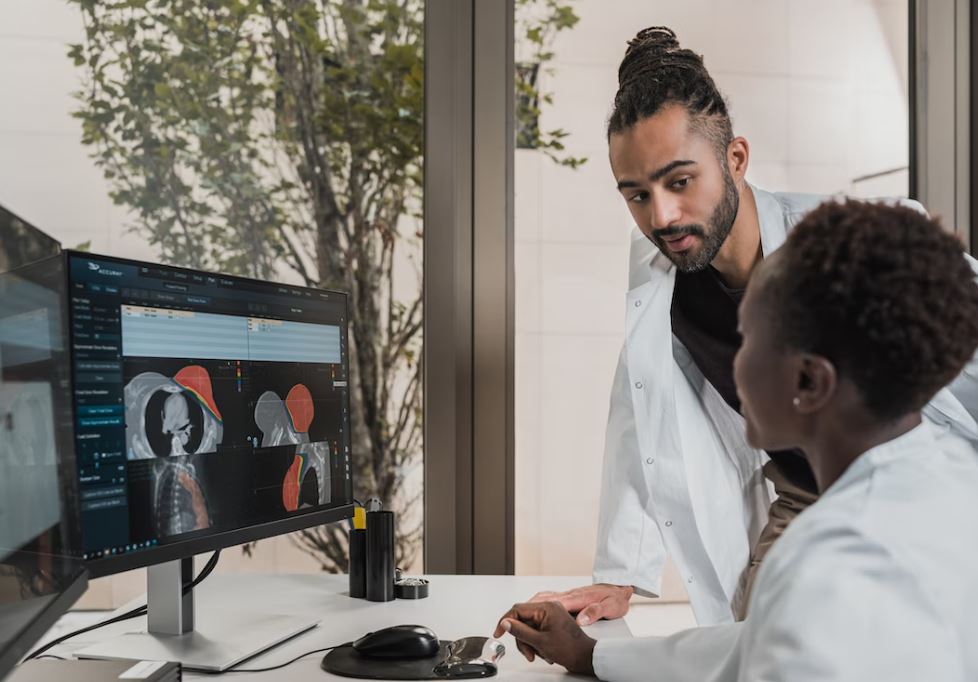As a professional working in the healthcare industry, there is no shortage of routes you can take as a medical worker. This is especially true for those in the nursing profession. For nurses, there is a multitude of advanced nursing careers you can pursue such as becoming a nurse educator or a privately practicing nurse practitioner. One nursing career that has begun to gain popularity is that of travel nursing.
Travel nurses enjoy a slew of benefits that make the role enticing and increasingly sought after. If you’ve found yourself wondering whether or not pursuing a career as a travel nurse is a good idea, you’re not alone.
Understanding the pros and cons of becoming a travel nurse can help you decide whether pursuing the role is right for you. Here are some key aspects of nursing that can help you determine if it’s worth pivoting your career to travel nursing.
What Is Travel Nursing and How Does it Work?
Before committing to changing the course of your career to become a travel nurse, it’s important to have a thorough understanding of what travel nursing is and how travel nursing works. In many ways, travel nurses’ function in the same way that their registered nurse counterparts do. They are both trained to do the same types of tasks in the same types of facilities.
What differentiates travel nurses from registered nurses is the fact that travel nurses do not live in the same area in which they work. Instead, travel nurses will travel to various locations to work in a facility for a certain period of time.
Travel nurses always work on a contractual basis with the facilities they travel to. Typically, these contracts will be for at least three months. During the duration a travel nurse works at a facility, they will not only be paid a salary but will also have their accommodation provided and be given a weekly stipend. In many cases, travel nurses will also be given a signing bonus for agreeing to a contract at a new facility.
While the traveling and compensation differ significantly between travel nurses and registered nurses, in terms of day-to-day duties, they function in the same capacity.
The Pros of Becoming a Travel Nurse
If you’re contemplating shifting gears and pursuing a career as a travel nurse, it can be useful to understand the benefits that come with the role. Having a clear understanding of the positive aspects of becoming a travel nurse can help make it easier to decide if pivoting into the new career is right for you. Here are some of the pros of becoming a travel nurse.
Higher Salaries
One of the biggest perks of being a travel nurse is the lucrative salaries that travel nurses can receive. On average, travel nurses make close to $20,000 more than their registered nurse counterparts. While this is an estimate for the average travel nurse, it must be kept in mind that the wages of travel nurses can vary widely.
In fact, some facilities are willing to pay travel nurses $10,000 a week during times when they are short-staffed. In addition, given that travel nurses have higher salaries, the overtime pay that they receive is far more substantial than their registered nurse counterparts.
More Autonomy
Travel nurses, unlike their registered nurse counterparts, have the freedom to choose which contracts they accept. This allows them to only have to work in locations and facilities where they feel comfortable working. Having this increased autonomy is a big draw that attracts many nurses to the profession of travel nursing.
Seeing New Places
For those who love to travel, becoming a travel nurse can be an amazing way to see new places. On top of having the opportunity to travel without it interfering with one’s work schedule, travel nurses typically have their travel and lodging expenses covered. As such, travel nurses have the opportunity to explore new places without having to foot the bill.
The Cons of Becoming a Travel Nurse
While there are many attractive aspects of being a travel nurse, it’s important to be aware of the negative aspects of the role as well. Before committing to pursuing the role, it’s important to be fully aware of the negative aspects that travel nurses must face. Here are the cons of becoming a travel nurse.
Having to Frequently Leave Home
While traveling can be exciting and enjoyable for some, for those with families, it can be quite difficult. Travel nurses are required to frequently leave home for months at a time in order to earn a living.
For those with families and other responsibilities that require them to stay in one place, being a travel nurse and constantly leaving home can cause an enormous amount of strain. This being the case, it’s important to be honest with yourself about whether the schedule of a travel nurse would be conducive to the time of life you envision yourself having in the future.
Not Being Able to Make Deep Bonds with Coworkers
While it is more than possible for travel workers to be on good terms with their coworkers, it is far harder for them to forge deeper bonds. While this isn’t a huge deal for some, for others this lack of deep workplace friendship can be incredibly taxing. As such, it’s important to understand that as a travel nurse, you wouldn’t be able to craft deep relationships with your coworkers.
Feeling Lonely
For travel nurses, spending time alone and away from friends and loved ones is a normal part of life. While some can handle being alone well, others can experience anxiety and feelings of depression as a result of it. If you find that being alone isn’t your strong suit, you may not be the type of person who would thrive as a travel nurse.
Pursuing Life as a Travel Nurse
Travel nurses are important medical professionals who help facilities function smoothly when they are short-staffed. While these professionals enjoy higher pay and more perks than their registered nurse counterparts, traveling is not for everyone and can take a toll on one’s personal life.
By having a deeper understanding of the role of a traveling nurse, you’re in a better position to weigh your options and decide whether or not becoming a travel nurse is right for you.
. With a Bachelor’s in Health Science along with an MBA, Sarah Daren has a wealth of knowledge within both the health and business sectors. Her expertise in scaling and identifying ways tech can improve the lives of others has led Sarah to be a consultant for a number of startup businesses, most prominently in the wellness industry, wearable technology and health education. She implements her health knowledge into every aspect of her life with a focus on making America a healthier and safer place for future generations to come.
With a Bachelor’s in Health Science along with an MBA, Sarah Daren has a wealth of knowledge within both the health and business sectors. Her expertise in scaling and identifying ways tech can improve the lives of others has led Sarah to be a consultant for a number of startup businesses, most prominently in the wellness industry, wearable technology and health education. She implements her health knowledge into every aspect of her life with a focus on making America a healthier and safer place for future generations to come.
Disclaimer: The viewpoint expressed in this article is the opinion of the author and is not necessarily the viewpoint of the owners or employees at Healthcare Staffing Innovations, LLC.









